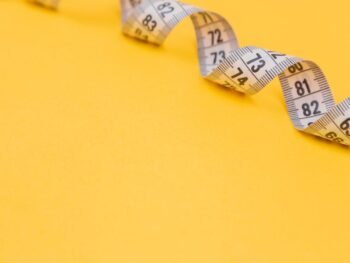Weight loss is a topic that is often discussed and sought after by many individuals. Whether it is for health reasons, to improve self-confidence, or to fit into a certain outfit, losing weight can have a significant impact on a person's life. This blog post aims to provide a comprehensive guide to weight loss, covering various aspects such as the science behind it, the role of calorie intake, the significance of a 1200 calorie diet, setting realistic goals, the impact of exercise, tracking progress effectively, overcoming challenges, the importance of a balanced diet, maintaining weight loss, seeking professional guidance, and concluding with encouragement to start or continue on a weight loss journey.
Key Takeaways
- Understanding the science of weight loss is crucial for successful weight loss.
- Calorie intake plays a significant role in weight loss, and a 1200 calorie diet can be effective for some people.
- Setting realistic weight loss goals is important to avoid frustration and disappointment.
- Exercise can have a positive impact on weight loss and overall health.
- Tracking progress effectively can help keep you motivated and on track towards your weight loss goals.
Understanding the science of weight loss
Weight loss is essentially the result of burning more calories than you consume. When you consume fewer calories than your body needs to maintain its current weight, it will start using stored fat as a source of energy, leading to weight loss. This can be achieved through a combination of reducing calorie intake and increasing physical activity.
Metabolism plays a crucial role in weight loss. It refers to the chemical processes that occur within the body to convert food into energy. The rate at which your body burns calories at rest is known as your basal metabolic rate (BMR). Factors such as age, gender, body composition, and genetics can influence your BMR. By understanding your BMR and making adjustments to your calorie intake and physical activity levels, you can effectively manage your weight.
The role of calorie intake in weight loss
Calorie intake plays a significant role in weight loss. When you consume more calories than your body needs for daily activities and bodily functions, the excess calories are stored as fat. On the other hand, when you consume fewer calories than your body needs, it will tap into its fat stores for energy, resulting in weight loss.
Creating a calorie deficit is essential for weight loss. This means consuming fewer calories than your body needs to maintain its current weight. A general rule of thumb is to aim for a calorie deficit of 500-1000 calories per day, which can lead to a safe and sustainable weight loss of 1-2 pounds per week. It is important to note that extreme calorie restriction can be detrimental to your health and may lead to nutrient deficiencies and muscle loss.
The significance of a 1200 calorie diet
A 1200 calorie diet is a popular approach for weight loss. It involves consuming approximately 1200 calories per day, which is considered a low-calorie diet. This calorie level is often recommended for individuals who are looking to lose weight in a safe and sustainable manner.
The benefits of a 1200 calorie diet include promoting weight loss, as it creates a calorie deficit that can lead to a gradual reduction in body weight. It also encourages portion control and mindful eating, as you have limited calories to work with. Additionally, a 1200 calorie diet can help improve overall eating habits and promote the consumption of nutrient-dense foods.
However, there are drawbacks to consider when following a 1200 calorie diet. It may not provide enough calories for individuals with higher energy needs, such as athletes or those with physically demanding jobs. It can also be challenging to meet all nutrient requirements on such a restricted calorie intake, potentially leading to nutrient deficiencies if not carefully planned. It is important to consult with a healthcare professional or registered dietitian before starting any low-calorie diet.
Setting realistic weight loss goals
Setting realistic weight loss goals is crucial for long-term success. Unrealistic goals can lead to frustration and disappointment, making it more likely for individuals to give up on their weight loss journey. It is important to remember that weight loss is not a linear process and that everyone's journey will be different.
When setting goals, it is important to consider factors such as your current weight, body composition, lifestyle, and overall health. Aiming for a weight loss of 1-2 pounds per week is generally considered safe and achievable. It is also important to focus on non-scale victories, such as improved energy levels, increased strength, and improved overall well-being.
To set achievable goals, it can be helpful to break them down into smaller milestones. For example, instead of focusing on losing 50 pounds, you can set a goal to lose 5 pounds in the first month. Celebrating these smaller victories along the way can help keep you motivated and on track.
The impact of exercise on weight loss

Exercise plays a crucial role in weight loss. It not only helps burn calories but also improves overall health and well-being. When combined with a healthy diet, regular exercise can enhance weight loss results.
Physical activity increases calorie expenditure, helping create a calorie deficit that promotes weight loss. It also helps build lean muscle mass, which can increase your metabolism and help you burn more calories even at rest. Additionally, exercise has numerous health benefits, including reducing the risk of chronic diseases such as heart disease and diabetes.
Incorporating both cardiovascular exercise and strength training into your routine is important for optimal weight loss results. Cardiovascular exercises such as running, cycling, or swimming can help burn calories and improve cardiovascular fitness. Strength training exercises such as lifting weights or bodyweight exercises can help build muscle mass and increase metabolism.
How to track progress effectively
Tracking progress is essential for staying motivated and making adjustments to your weight loss plan if needed. There are various methods you can use to track your progress effectively.
One common method is tracking your body weight. This can be done by weighing yourself regularly using a reliable scale. It is important to weigh yourself at the same time of day and under similar conditions to get accurate results. However, it is important to remember that body weight can fluctuate due to factors such as water retention and muscle gain, so it should not be the sole measure of progress.
Another method is measuring your body composition. This can be done using tools such as body fat calipers or bioelectrical impedance scales. These methods provide a more accurate representation of your body composition by measuring the percentage of body fat versus lean muscle mass.
Tracking your food intake is also important for weight loss. This can be done using a food diary or mobile apps that allow you to log your meals and snacks. By tracking your food intake, you can become more aware of your calorie intake and make adjustments if needed.
Common challenges and how to overcome them
Losing weight can be challenging, and it is common to face obstacles along the way. However, with the right mindset and strategies, these challenges can be overcome.
One common challenge is dealing with cravings and emotional eating. It is important to identify triggers that lead to unhealthy eating habits and find alternative ways to cope with emotions. This can include finding healthier food options that satisfy cravings or engaging in activities such as exercise or hobbies to distract yourself from emotional eating.
Another challenge is staying motivated. It is normal to experience fluctuations in motivation throughout your weight loss journey. To stay motivated, it can be helpful to set short-term goals, reward yourself for reaching milestones, and surround yourself with a supportive network of friends and family.
Lack of time is another common challenge. Many individuals struggle to find time for exercise or meal preparation. However, it is important to prioritize your health and make time for these activities. This can involve scheduling workouts in advance, meal prepping on weekends, or finding creative ways to incorporate physical activity into your daily routine.
The importance of a balanced diet
A balanced diet is essential for weight loss and overall health. It involves consuming a variety of nutrient-dense foods from all food groups in appropriate portions. A balanced diet provides the necessary nutrients for optimal bodily functions and helps maintain a healthy weight.
Including a variety of fruits, vegetables, whole grains, lean proteins, and healthy fats in your diet is important for weight loss. These foods are rich in vitamins, minerals, and fiber, which can help keep you feeling satisfied and provide essential nutrients for overall health.
It is also important to practice portion control and mindful eating. This involves being aware of your hunger and fullness cues and eating until you are satisfied, not overly full. It can be helpful to use smaller plates and bowls to control portion sizes and to eat slowly and mindfully, savoring each bite.
Maintaining weight loss after reaching your goal
Maintaining weight loss is just as important as losing weight. It involves making sustainable lifestyle changes that can be maintained long-term. Here are some strategies to help maintain weight loss:
1. Continue practicing healthy eating habits: Even after reaching your weight loss goal, it is important to continue following a balanced diet and practicing portion control. This will help prevent weight regain and promote overall health.
2. Stay active: Regular physical activity should remain a part of your routine even after reaching your goal weight. Aim for at least 150 minutes of moderate-intensity aerobic activity or 75 minutes of vigorous-intensity aerobic activity per week, along with strength training exercises.
3. Monitor your progress: Continue tracking your progress even after reaching your goal weight. This can help you stay accountable and make adjustments if needed.
4. Be mindful of your habits: Pay attention to any old habits that may have contributed to weight gain in the past and make a conscious effort to avoid them. This can include emotional eating, mindless snacking, or excessive consumption of sugary or processed foods.
5. Seek support: Surround yourself with a supportive network of friends and family who can help you stay motivated and accountable. Consider joining a weight loss support group or seeking the guidance of a registered dietitian or healthcare professional.
Seeking professional guidance for safe and effective weight loss
Seeking professional guidance can be beneficial for safe and effective weight loss. There are various professionals who can provide guidance and support throughout your weight loss journey.
Registered dietitians are trained professionals who can provide personalized nutrition advice and help you develop a balanced meal plan that meets your specific needs. They can also help address any underlying health conditions or nutrient deficiencies that may be impacting your weight loss efforts.
Personal trainers or fitness coaches can provide guidance on exercise routines and help you develop a workout plan that aligns with your goals and fitness level. They can also provide motivation and accountability to help you stay on track.
If you are struggling with emotional eating or have a history of disordered eating, seeking the help of a therapist or counselor who specializes in eating disorders can be beneficial. They can help address any underlying emotional issues that may be impacting your relationship with food and provide strategies for healthy coping mechanisms.
In conclusion, weight loss is a complex process that involves various factors such as calorie intake, exercise, goal setting, tracking progress, overcoming challenges, maintaining a balanced diet, and seeking professional guidance. It is important to approach weight loss in a safe and sustainable manner, setting realistic goals and making lifestyle changes that can be maintained long-term. Remember that everyone's weight loss journey is unique, and it is important to focus on progress rather than perfection. With dedication, patience, and the right support, achieving your weight loss goals is within reach.
If you're curious about the impact of martial arts movies on popular culture, you'll definitely want to check out this fascinating article on the evolution of martial arts movies. From Bruce Lee to Jackie Chan, this article explores how these films have evolved over time and the influence they have had on the genre. Discover the iconic moments and groundbreaking techniques that have made martial arts movies a beloved part of cinema history. Read more about it here.
FAQs
What is the recommended daily calorie intake for weight loss?
The recommended daily calorie intake for weight loss varies depending on factors such as age, gender, height, weight, and activity level. However, a general guideline is to consume 500-1000 fewer calories than your daily maintenance level.
Is it safe to eat 1200 calories a day?
Eating 1200 calories a day can be safe for some people, but it is not recommended for everyone. It is important to consult with a healthcare professional before starting any weight loss program to ensure it is safe and appropriate for your individual needs.
How much weight can you lose by eating 1200 calories a day?
The amount of weight you can lose by eating 1200 calories a day depends on various factors such as your starting weight, age, gender, and activity level. However, a safe and sustainable weight loss goal is 1-2 pounds per week.
How long will it take to lose 30 pounds by eating 1200 calories a day?
Assuming a safe and sustainable weight loss goal of 1-2 pounds per week, it would take approximately 15-30 weeks or 3.5-7 months to lose 30 pounds by eating 1200 calories a day.
What are some tips for losing weight on a 1200 calorie diet?
Some tips for losing weight on a 1200 calorie diet include choosing nutrient-dense foods, staying hydrated, incorporating physical activity, and seeking support from a healthcare professional or a registered dietitian. It is also important to avoid crash dieting and to focus on making sustainable lifestyle changes.














